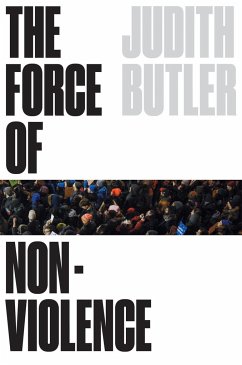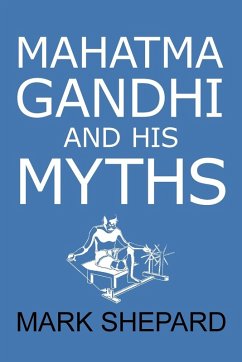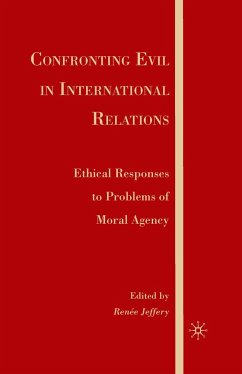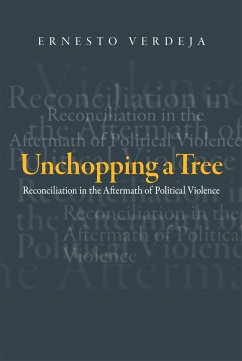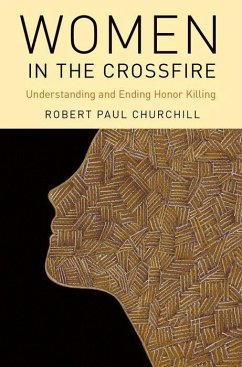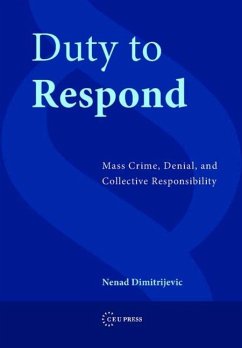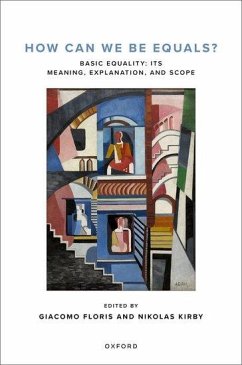Nicht lieferbar
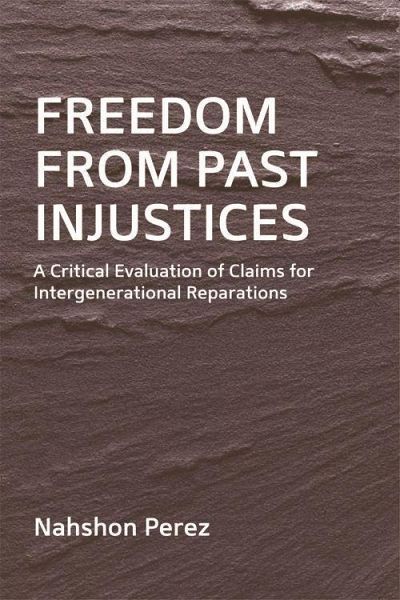
Freedom from Past Injustices
A Critical Evaluation of Claims for Inter-Generational Reparations
Versandkostenfrei!
Nicht lieferbar
'Drawing on illuminating examples from politics and case law, Nahshon Perez compellingly argues against compensating descendants of victims of historical injustices. Patiently and skilfully, Perez builds a strong case for a clean slate: he shows it's sometimes best to let bygones be bygones.' Andrew I. Cohen, Georgia State University 'Freedom from Past Injustices is a major contribution to the literature concerning the rectification of historical wrongs, and contains important arguments against rectifying past wrongs. It examines carefully and critically most of the arguments in the field and ...
'Drawing on illuminating examples from politics and case law, Nahshon Perez compellingly argues against compensating descendants of victims of historical injustices. Patiently and skilfully, Perez builds a strong case for a clean slate: he shows it's sometimes best to let bygones be bygones.' Andrew I. Cohen, Georgia State University 'Freedom from Past Injustices is a major contribution to the literature concerning the rectification of historical wrongs, and contains important arguments against rectifying past wrongs. It examines carefully and critically most of the arguments in the field and it defends successfully an unpopular position.' Alon Harel, Hebrew University of Jerusalem Should contemporary citizens be burdened by requests of material redress for the rectification of past wrongs? There is a widespread belief that contemporary citizens should take responsibility for rectifying past wrongs. Nahshon Perez challenges this view, questioning attempts to aggregate dead wrongdoers with living people, and examining ideas of intergenerational collective responsibility with great suspicion. He distinguishes sharply between those who are indeed unjustly enriched by past wrongs, and those who are not. Looking at issues such as the distinction between compensation and restitution, counterfactuals, and the non-identity problem, he concludes that individuals have the right to a clean slate, and that almost all of the pro-intergenerational redress arguments are unconvincing. Key Features - Unique in arguing against intergenerational material redress - Examines a diversity of pro- and anti-redress arguments - Illustrated with several examples including court cases from Australia, Northern Cyprus, the United States and Austria Nahshon Perez is a visiting Assistant Professor at the Elie Wiesel Center for Judaic Studies at Boston University. Jacket image: Slate (c) Ian Nixon/iStockphoto. Jacket design: [EUP logo] www.euppublishing.com





